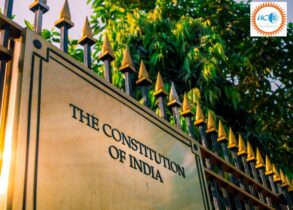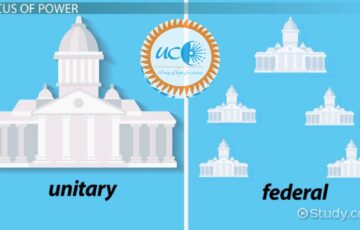As economic, social and political conditions of a society mutate continuously, a constitution must be a living document in order to facilitate these ever-dynamic developments and needs of society. Elaborate in Indian context.
Approach:
- Introduce the answer by highlighting the importance of flexibility in the constitution to accommodate socio-economic-political changes.
- In the body of the answer discuss in detail how the Indian constitution has adapted to various social, political and economic changes through suitable amendments.
- Conclude the answer with briefly emphasizing upon the need for flexibility in the constitution.
The constitution is the supreme law of the land, deriving its power from and reflecting the will of the people. A completely rigid constitution becomes a hurdle in adapting to the changing social, economic, political realities.
Excessive rigidity is obstructive of growth/development, that can lead to dissatisfaction in the citizens and the country. The constitution needs to be dynamic, especially in case of India, due to the following reasons-
Economic– Economy tends to change with time.
- The 25th amendment to the constitution inserted article 31C in the constitution. This Article prioritized the objectives of equitable distribution of material resources and prevention of concentration of wealth over the fundamental rights.
- The 44th amendment to the constitution made property a legal right in place of a fundamental right. It empowered the government to take pro-poor measures as land reforms.
- The Constitution was amended to incorporate the provisions of GST and create “one nation one market” with the help of GST council. The 101st constitutional amendment re-adjusted the taxation powers of the Centre and the States.
Social– Social conditions of India are everchanging.
- The scope of Right to Life under Article 21 has evolved to include the right to livelihood, privacy, etc.
- Right to education has been added as a Fundamental Right under Article 21A.
- The Constitution has been amended multiple times to extend the benefit of reservation to the SCs, STs etc., backward classes. Further, NCSC and NCST were made separate constitutional bodies while NCBC has been given constitutional status to ensure welfare of backward classes.
- The 42nd Amendment added many pro-poor measures including “participation of workers in the management of industries” in the Directive Principles of the State Policies (DPSPs).
- Many languages have been added to the 8 th Schedule through amendments, making the constitution more inclusive and sensitive to the aspirations of citizens.
Political–
- The 10th Schedule was added to prevent defection and check horse trading of elected representatives.
- The 73rd and 74th Amendments have given a constitutional status to the grassroot democracy in the Country.
- The judgement of the Supreme Court in the Maneka Gandhi case introduced the American system of “due process of the law”. This widened the scope for judicial review in India.
- Amendments have been made to incorporate Sikkim, Goa, Puducherry, etc. into the Indian territory.
Despite creating the largest constitution of the world, it was impossible for the makers to cater for all the needs and aspirations of future generations. The Indian Constitution was made flexible enough to facilitate the ever- dynamic developments and needs of society.









